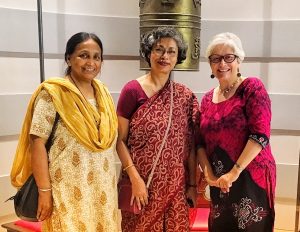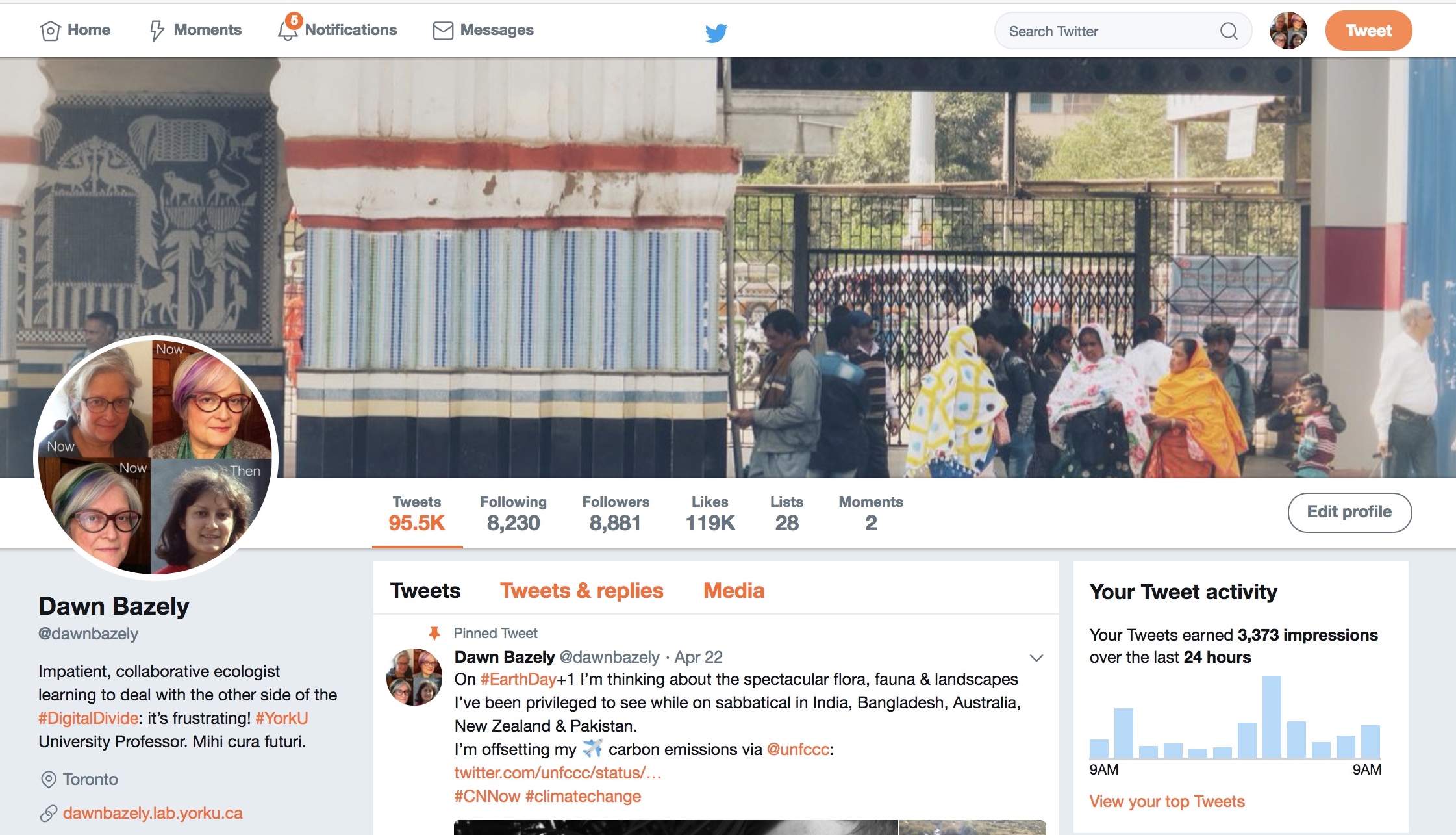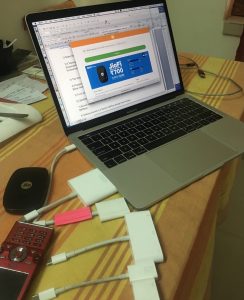This is the last leg of my four-month sabbatical trip to Asia and the southern hemisphere. I've met wonderful new colleagues, taught incredible students and learned a huge amount.
I've been in India (2.75 months) with a side-trip to Bangladesh, Australia (3.5 weeks) with a side-trip to New Zealand. Now, I'm in Pakistan for 2 weeks. Along the way I've experienced very variable internet access for a whole host of different reasons, including:
- having my York University email and access to this wordpress site frozen;
- having difficulty accessing eduroam while at Monash University;
- having no internet at a posh airbnb in Melbourne for a week, due to a mix-up when the host switched his Internet Service Provider.
At Visva Bharati University, Santiniketan, West Bengal, I spent a HUGE amount of time simply trying to get onto the internet. When I did get into my email, I had to decide which 2 or 3 emails to read and respond to, and which task to prioritize when the wifi speeds allowed webpages to load at rates faster than watching paint dry.
During my time at Visva Bharati, which is a national university in a rural location, the university increased the daily wifi data allowance to 1 GB. Together with my 2 GB JioFi hotspot allowance I THEORETICALLY had 3 GB of daily data. But this was a hypothetical, because I mostly couldn't get onto wifi for any length of time, and when I did, speeds were usually rather S-L-O-W.
This is all to say that I have been living on the other side of the Digital Divide. It has been an eye-opener.
Insight from a Computer Scientist in Melbourne Airport
I'm writing this post from Lahore where I finally have the kind of internet access approaching what I am used to in Toronto. I met a computer science professor in Melbourne Airport, who did his PhD at Waterloo University in Ontario, Canada. It turned out that he was originally from Pakistan, and we got chatting when he overheard me at the check-in counter, saying where I was headed.
Naturally, I regaled him with my internet access adventures, including the reason my YorkU access was frozen. Apparently my email become compromised (hacked). This most likely happened when I used the unsecure, free wifi in Delhi airport to check my travel itinerary. I am now looking into VPN (Virtual Private Network) options for when I use unsecure wifi.
When I tried to log into my YorkU accounts, I got the message that my passwords were invalid, and that my username didn't exist (!), which was a most unsettling feeling. It took me 3 weeks, during which time I was working long hours during my last 10 days at Visva Bharati, and then was on the road travelling to, and around SW Australia, to regain access to my YorkU email and services. Accessing the IT help desk from half way around the world was not an easy task.
My new computer science colleague confirmed and explained everything that I had experienced in Australia, from challenges with getting eduroam access to my airbnb host's ISP problems. My #socialmedia colleague, Dr. Mel Thomson, whom I visited in Geelong also shared her experiences with me. He also assured me that Lahore has excellent, stable internet. It does, and this is why I can write this post.
Doing work is Difficult on the Slow Side of the Digital Divide
I was unable to do most of my academic work that relies upon secure, reliable, fast access due to the enormously variable quality and quantity of internet access during the last four months. This included accessing the digitized old books via the Biodiversity Heritage Library that I needed to complete my chapter on Women Botanists in 19th Century Ontario. Whenever I managed to get onto the internet, pages simply wouldn't load for me at any kind of reasonable rate in Santiniketan.

Professors Shibani Chaudhury (Visva Bharati), Joyashree Roy (Asian Institute of Technology & Jadavpur University), Dawn Bazely (L to R)
Other projects that I assumed I would be able to complete while away from Toronto also couldn't be done or were done much more slowly. I adjusted my Biodiversity teaching and science communication workshops so that they didn't rely on stable, rapid internet access.
I was curious about how my academic colleagues in West Bengal where internet is not as fast and reliable as in cities like Delhi, Mumbai and Bangaluru, handle this wonky wifi access.
The day before I left India for Australia, I had dinner with Jadavpur University Economics Professor, Joyashree Roy whom we invited to York University nearly 10 years ago for a climate change conference. Joyashree told me that she maintains three different ISP plans, in order to ensure that she always has wifi access!
Net Neutrality and the Digital Divide: Part of the Same Issue
I've done research and advocated for Open Access, Science Communications and Citizen Science in the last 6-7 years. My experiences in the last 4 months have implications for how I think about this and for all of my teaching and research. I'm now extending my research to take account of the Digital Divide more explicitly.
While I have long been aware of the Net Neutrality issue, I am now of the opinion that internet access, which can educate, empower and help people, has morphed into nothing more nor less than a human rights issue. My experience of the last four months has been that the Digital Divide and its consequences are real for those people without reliable, affordable access.
The internet should be treated as infrastructure and a public utility. Of course, there are naysayers who say that this will stifle innovation. Which kind of seems like saying that lighting and water for everyone stifles innovation. Many scholars such as Tim Wu (Gill Wu's son) have written about this a long time on this, and I'm in the process of reading their research.



